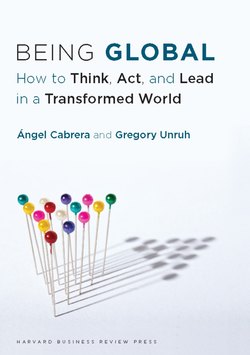Читать книгу Being Global - Gregory Unruh - Страница 12
На сайте Литреса книга снята с продажи.
What Is a Global Leader?
ОглавлениеGlobal leaders craft solutions by bringing together people and resources across national, cultural, even organizational boundaries. Global leaders are visionaries inspired by a worldwide challenge that remains unsolved, an ignored social injustice or a business opportunity that has gone unexploited. They can identify and call on different individuals who together possess all the pieces necessary to make the vision a reality. These people may speak different languages and be motivated by diverse goals or driven by different values. They may be unlikely collaborators. Global leaders understand the cultural, social, or political differences that keep contributors apart and find ways to build, cultivate, and connect them despite, and sometimes because of, those differences.
In Agassi's case, it was clear almost from the outset that his vision of sustainable transportation would not be possible without the engagement of individuals and organizations spanning the globe, from the public, private, and civil sectors. So Agassi raised venture capital from investors in California, New York, Copenhagen, and Tel Aviv for his firm, Better Place; he reached agreements with the governments of Israel, Denmark, Australia, Hawaii, and California; and he partnered with the Franco-Japanese automobile conglomerate Renault-Nissan.
Agassi is an exceptional human being, but he is not unique. Over the years, we have met many people who share the same ability to form a vision and bring together resources and individuals from around the globe to realize that vision in a way that brings value to everyone involved.
Other global leaders we introduce in this book include Rangina Hamidi, an Afghan woman who launched a textile business in Kandahar in 2002 after the fall of the Taliban; Lalit Ahuja, who help establish Target in India; Merle Hinrichs, founder of the global trade matchmaking firm Global Sources; Bill Browder, founder of Hermitage Capital Management; and dozens of others.
Each of these leaders exhibits the traits and characteristics needed to effectively craft global solutions. They act as bridge builders, connectors of global resources and talent, dedicated to finding new ways to create value. None of them was born a global leader, but they each found a way to become one. They have experienced the difficulties of crossing lines in a world that is becoming more tightly connected yet no flatter, where the nuances and differences across cultures are becoming, if anything, more visible and critical.1 They have found ways to navigate uneven terrain, close gaps, and make a difference for people around the world. The old adage “think global, act local” does not begin to describe any of them. Agassi, Hamidi, Browder, Ahuja, and Hinrichs are—or more accurately, they strive to be—global.
